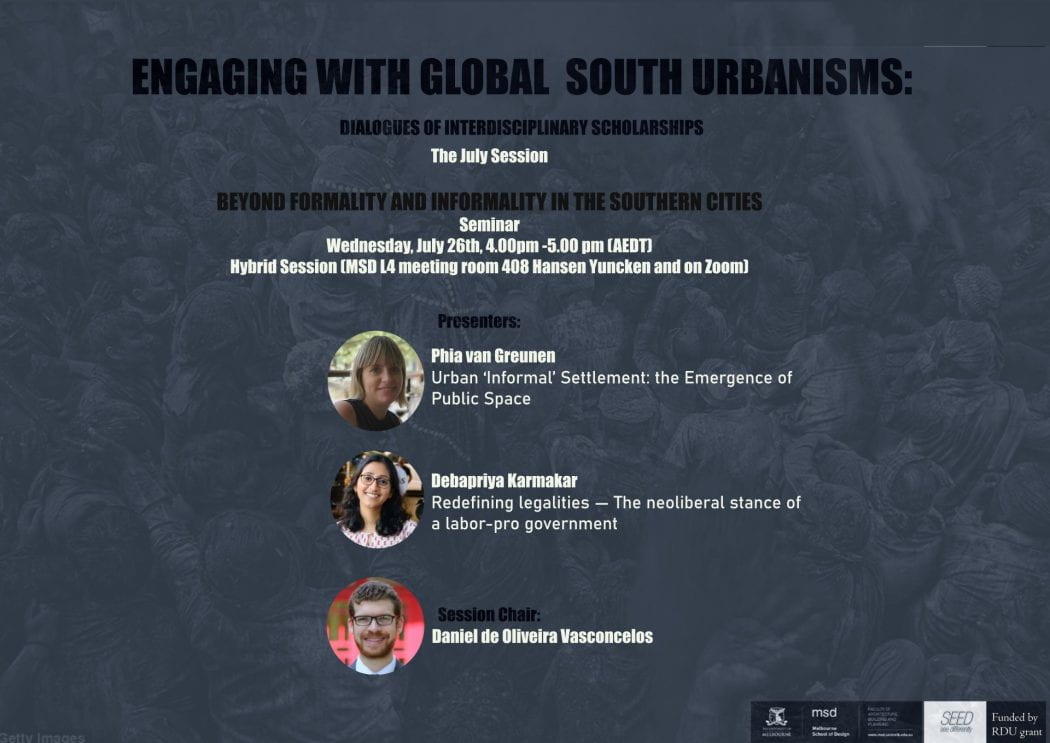
SEED Session: Engaging with Global South Urbanisms / 26 July 2023 [Hybrid Seminar]
Presentations: Phia van Greunen and Debapriya Karmakar
Session Chair: Daniel de Oliveira Vasconcelos
Urban ‘informal’ settlement: The emergence of public space
It is easy to associate public space and informal settlements with resistance. Public space is always produced through geographies of power that legitimise certain forms of action while marginalising other ways of being. Urban informality challenges such representations. While the will of the planner is a repetition of property boundaries and coding of use, the informal settlement is always in process. Public spaces produced through informal settlement, extend beyond play and consumption. These are the places where people access livelihood opportunities through trade and social networks; the places where these majorities practice everyday life. It is open-ended and rhizomatic: a bio-social-technical assemblage. But how does public space emerge through informal settlement? What are the various influences (social and material) to the shaping of settlement over time? What are the relationships at varied spatial- and temporal scales? What are the various uses and meanings of public space in informal settlement? How is it defined in relation to private space? How is that threshold understood, negotiated, materially demarcated and continually contested? What is the capacity of public space in its continued re-shaping; how do appropriation of space at interface scale influence larger-scale settlement intensification/variation and vice versa? The research explores these questions through three case studies in Namibia and South Africa.
Redefining legalities: The neoliberal stance of a government
Kolkata’s relative torpid existence during the post-independence period was pumped with newfound gusto after the permeation of the neoliberal economy. The current logic of market-driven urbanisation is highly conspicuous through the mega-real estate projects, organised around the concept of enhanced experience of life. The materialisation of these projects, rooted in the altered standpoint of the erstwhile Left Front Government in Bengal, has proceeded through significant reconfiguration of the urban land laws and concomitant space restructuring. Splintering across neighbourhoods, some of the prominent efforts toward such ambitious bouts of restructuring have targeted the former industrial land entailing large-scale replacement of working-class space with exclusive spaces broadly surrounding gated apartments. Exploring the relationship between the state, capital, and labor, this study examines how under the present neoliberal order, the reconstruction of urban space, through the conversion of industrial land-use, thrives on the production of innovative forms of consumption, transforming the means of production and alienating the participation of the working-class in the process. Largely drawing on the fieldwork concerning the defunct industrial units, the study attempts to foreground the process through which a government, amid the imperatives of the market economy has prioritised the interests of the capital at the expense of labor rights. Such practices have introduced ‘remodified’ definitions of legalities, entailing a class politics in urban governance.
For queries and/or to join the zoom discussion, please get in touch with Yashodara Ranasinghe.
